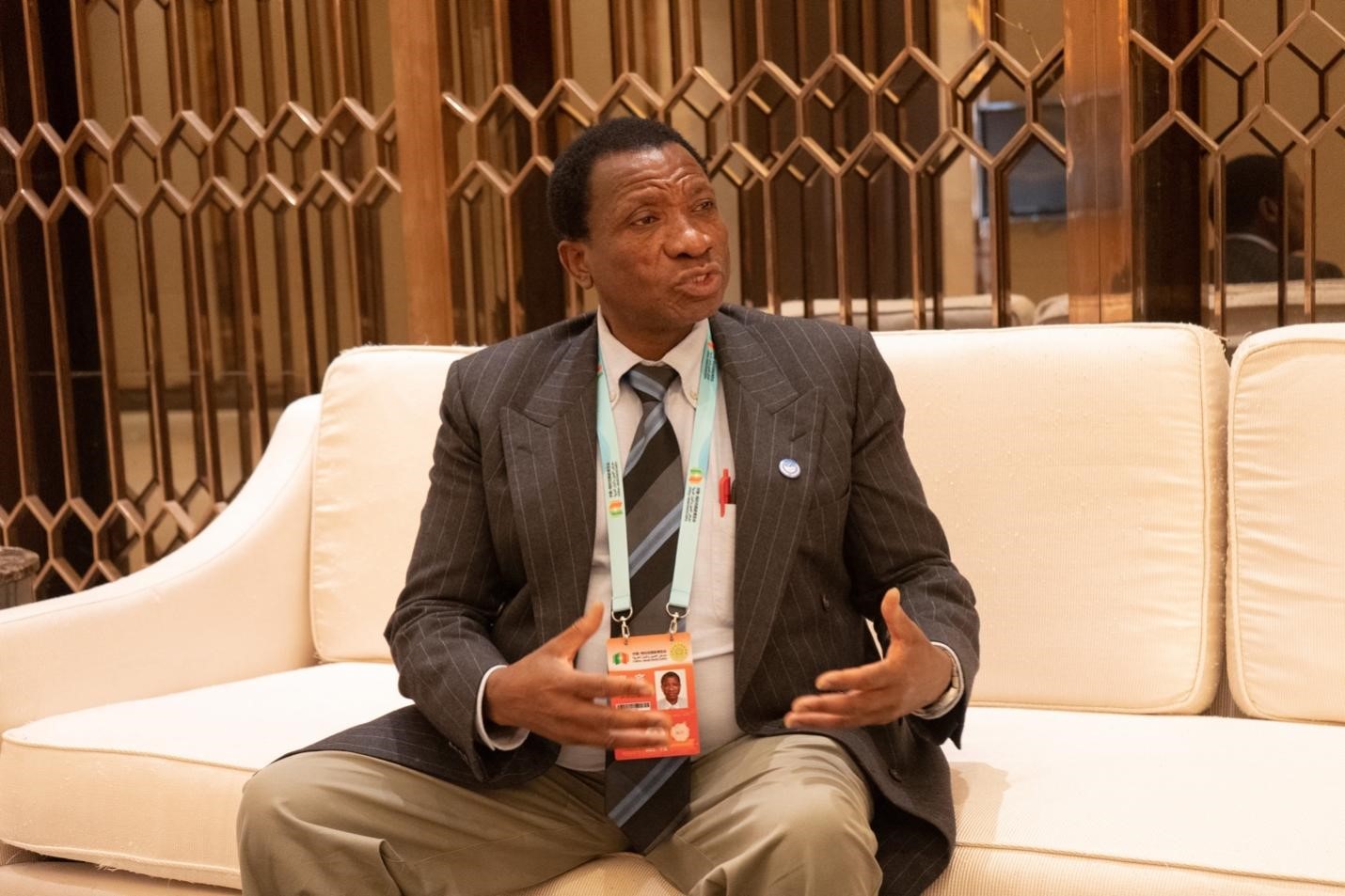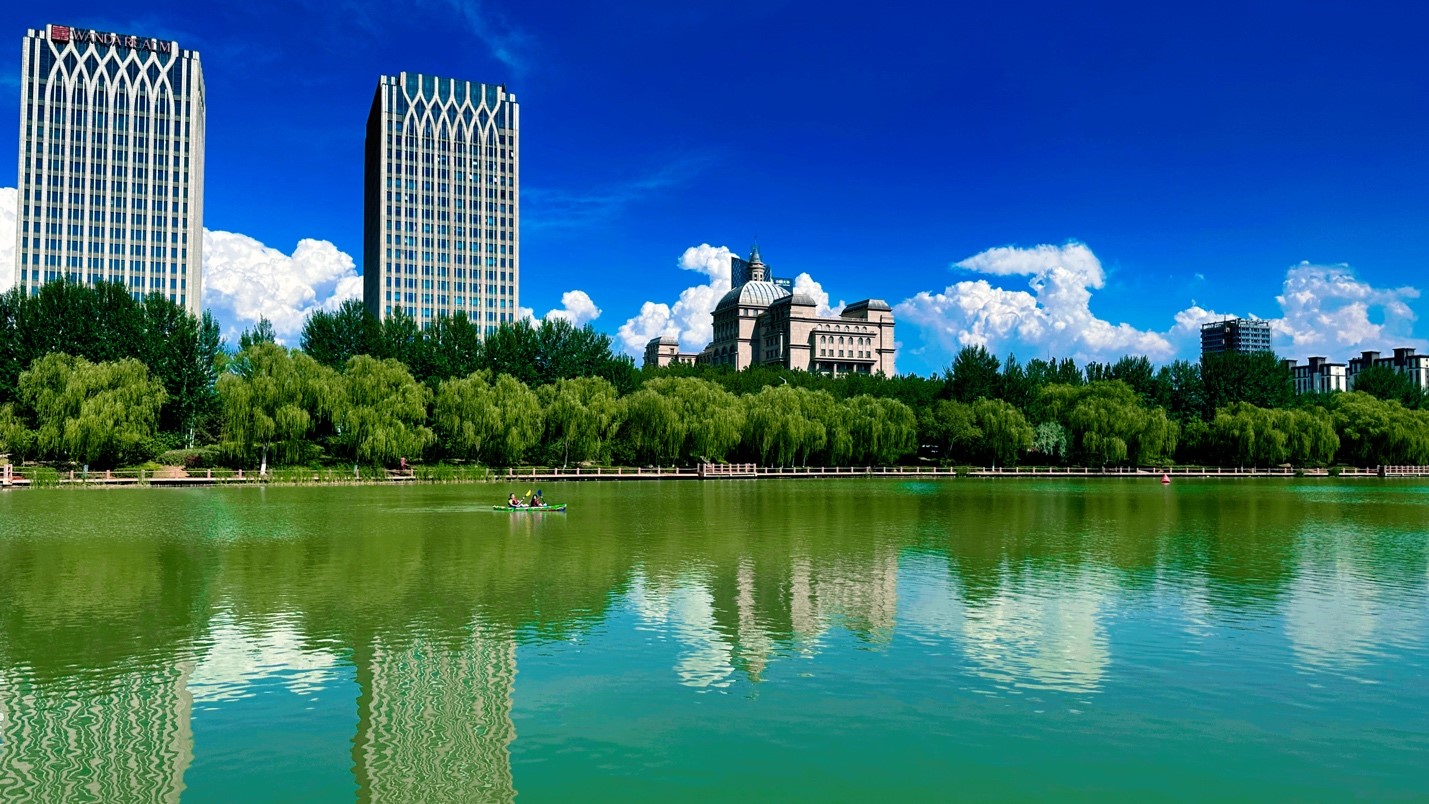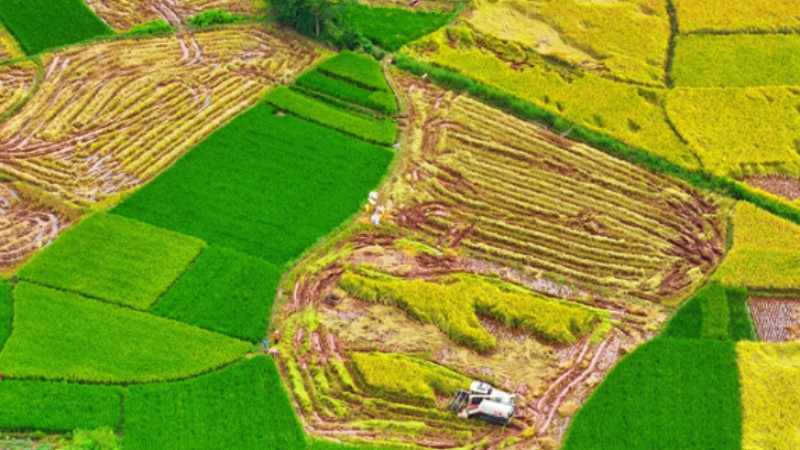China's successful experience and technologies bolster global anti-desertification efforts: UN official

Johns Muleso Kharika, chief of the Unit of Science, Technology and Innovation, UNCDD, during an exclusive interview with People's Daily Online, Sep. 22, 2023. (People's Daily Online/Kuan Rong)
China's achievements in combating desertification, combined with its innovations and technologies to protect ecosystems, offer inspiration for developing countries. These strategies should be promoted and adopted by grappling with ecological challenges, according to Johns Muleso Kharika, chief of the Science, Technology and Innovation Unit, United Nations Convention to Combat Desertification (UNCCD).
Kharika shared these insights at the sixth China-Arab States Expo in Yinchuan, northwest China's Ningxia Hui Autonomous Region. Kharika joined global academics to better understand Ningxia's successful strategies against challenges like desertification and water preservation.
"It's my first visit to Yinchuan, Ningxia. The environmental protection efforts I've seen here are truly amazing. I'm impressed to learn that Yinchuan is a wetland city inscribed on the Ramsay Convention on Wetlands because of the wonderful preservation efforts done by the locals," Kharika told People's Daily Online.
"It's truly amazing how the city has combined urban development and natural preservation," added Kharika.
In 2018, the Ramsar Convention recognized Yinchuan as an "international wetland city," acknowledging its ongoing commitment to protecting wetlands through innovative means. Yinchuan is the only city in western China to receive this honor.
Because of its arid climate and limited water resources, Ningxia has historically faced severe environmental problems, including desertification. Xihaigu, a largely mountainous region in Ningxia, was once dubbed the "most unfit place for human settlement" by the United Nations in the 1970s due to land degradation, drought, and its delicate ecology.[1] Decades later, those once barren lands flourish as forests and grasslands.
“It’s truly amazing to see Ningxia’s green transition since the 1970s. The world can learn from its experience in the fight against desertification and climate change,” said Kharika, who noted that Ningxia’s ecological achievement is a model for the rest of the world to follow and an ideal to strive towards.

Wetlands in Yinchuan, northwest China's Ningxia Hui Autonomous Region. (People's Daily Online/Ma Nan)
According to Kharika, the modern environmental protection technologies he saw at the expo can help the world's efforts to combat desertification and ensure food security in developing countries. Technological exports from China to other developing countries can facilitate sustainable and eco-friendly development.
"At the expo, I have seen early warning systems that can monitor drought and sandstorms. I've seen how drones can monitor crops and soil conditions. I've also seen applications that can help people monitor their water use and carbon storage. As an African, I think these technologies are beneficial for our people as well," said Kharika.
Kharika emphasized China's role as a major player in addressing environmental issues and the positive impact China has had on developing nations, particularly in Africa. He praised China's efforts to promote the African Union's Great Green Wall Initiative, launched in 2007 with the ultimate goal of planting a wall of trees across Africa at the southern tip of the Sahara Desert.

Wetlands in Yinchuan, northwest China's Ningxia Hui Autonomous Region. (People's Daily Online/Ma Nan)
Kharika also praised the straw checkerboard sand barrier, a low-cost method devised by Ningxia scientists to stabilize shifting dunes using drought-resistant grass.
"During my time in Ningxia, I also witnessed the Chinese blending modern technologies with indigenous knowledge and traditions; I believe that more nations should adopt these practices," he stated.
"I come from a poor continent in technology and money but rich in traditional wisdom. We need a combination of China's assistance in fostering technical growth and our indigenous wisdom," he said.
Photos
Copyright © 2023 People's Daily Online. All Rights Reserved.









